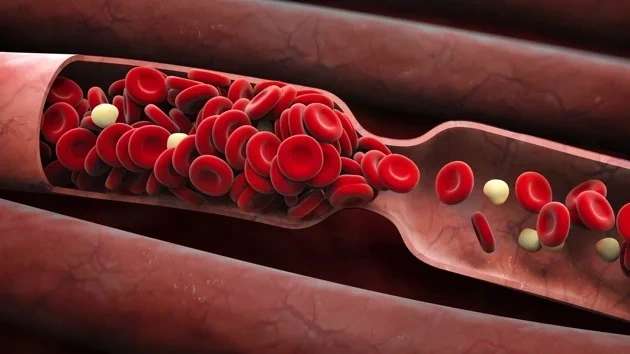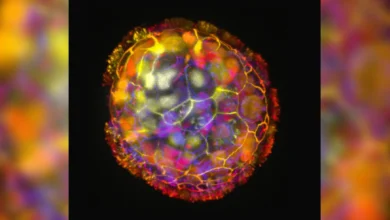6 symptoms that indicate the presence of clots in your body

Thrombosis is a series of interactions that end up increasing the thickness of blood to prevent bleeding in cases of wounds. When blood does not flow smoothly through blood vessels, it can begin to clot and transform from a liquid free from elements that impede flow to a semi-solid gel or blood clots.
Some symptoms of a blood clot include swelling of the clot’s location such as swelling of the legs or arms.
Or a change in skin colour to red or blue with itchy and painful feeling as the clot worsens can range from mild to severe pain.
Although thrombosis is one of the body’s defensive mechanisms, such as when blood clots to stop a haemorrhage caused by an injury, sometimes blood clots occur in parts of the body that do not need to as a result of blood vessel blockages, which can cause a stroke or heart attack.
In order to avoid the severe consequences of having a hidden blood clot in our bodies that is not treated, you have 6 pathological signs indicating the presence of these clots in your body:
Pain and muscle cramps
Feeling persistent pain in the body with repeated muscle convulsions may be a symptom of a blood clot, which requires immediate consultation with the doctor.
Unexplained cough
An unexplained cough is also one of the most important symptoms of a blood clot which also needs to monitor heart rate and breathing.
Shortness of breath
Shortness of breath is one of the signs of a blood clot in the lungs so it is recommended to check for other symptoms such as chest pain, dizziness or accelerated heartbeat.
- Chest pain with deep breathing
Be careful and consult a doctor immediately if complaining about chest pain associated with deep breathing because it is one of the serious indications of a blood clot.
Red lines on the skin
Blood clots can appear in the form of red veins-length lines in which case the veins are not considered normal and the doctor should be consulted immediately.
Swelling of the legs
Swelling of the legs is commonly caused by a clot because it affects circulation, preventing oxygen from reaching the body’s vital devices which requires immediate medical consultation.





